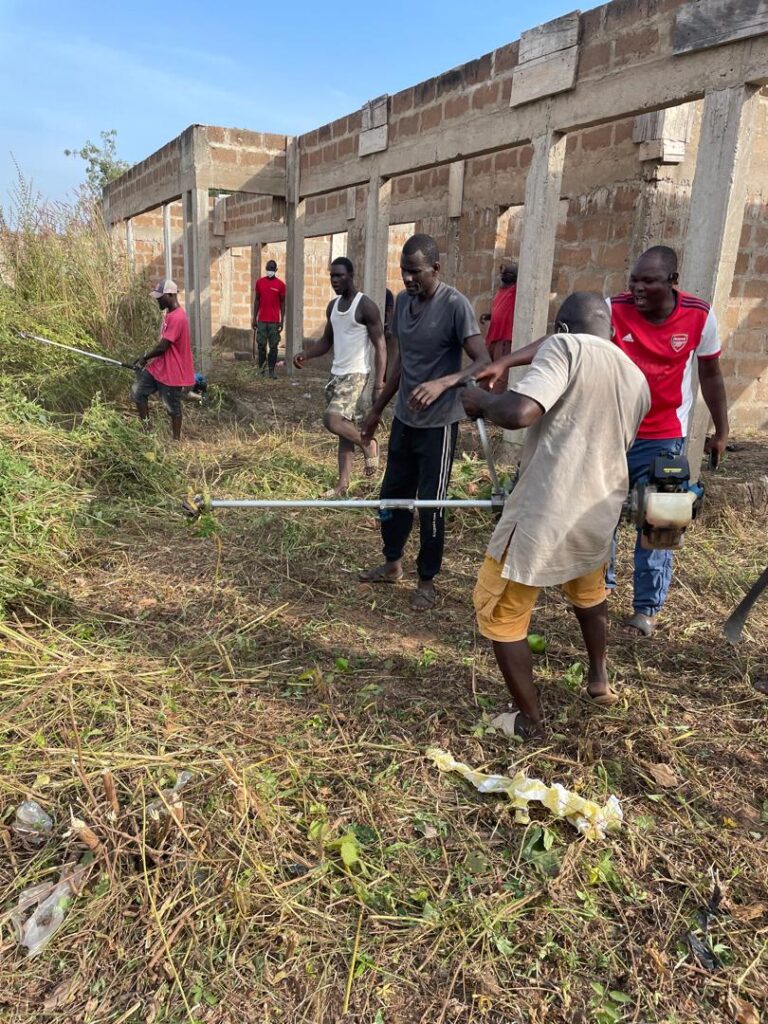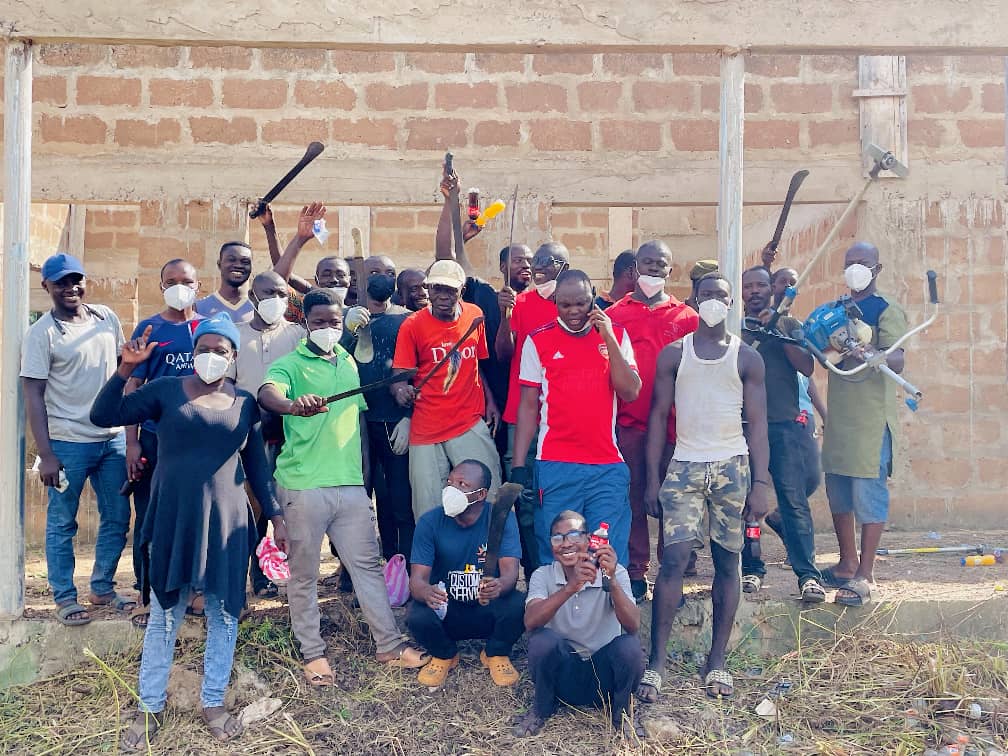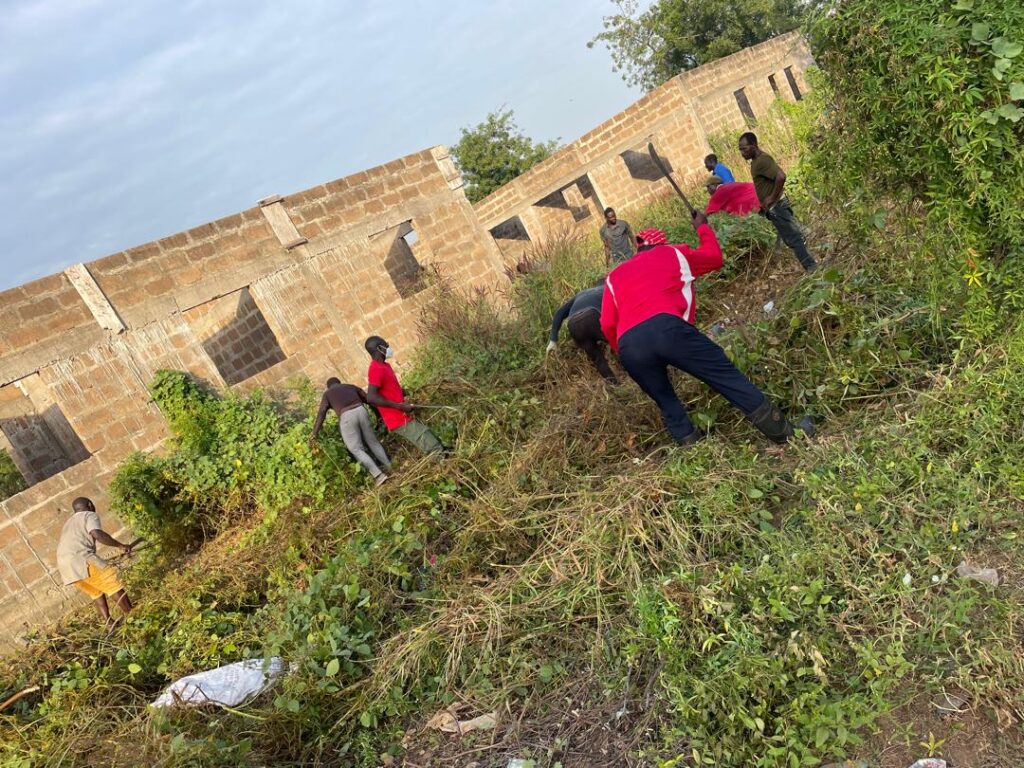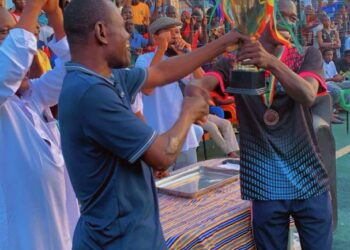Damongo – 14th November, 2025.
The Assemblyman for the DASS Electoral Area in Damongo, Sumaila Hafiz Kamara, has led a team of community volunteers in a major clean-up exercise around a local clinic structure and a GNPC-supported toilet facility, reinforcing calls for improved sanitation and safer environments across the Savannah Region. The exercise, carried out on 14th November 2025 at the Yagbon Residential Area, involved clearing overgrown weeds and removing accumulated waste—efforts aimed at making WASH-related facilities safer, accessible, and conducive for public use.
The yet-to-be-completed structures had become engulfed by thick bushes, posing risks to residents. Overgrown vegetation in such areas is known to attract snakes, mosquitoes, and other harmful insects, raising the likelihood of bites and the spread of diseases like malaria. The Assemblyman noted that such neglected surroundings can also become hideouts for criminals and hubs for truants, undermining community safety and discouraging gatherings or productive use of the space.
Residents who participated in the clean-up emphasized that maintaining clean surroundings is central to safeguarding public health and boosting communal pride. Health advocates also stress that regular sanitation activities enhance visibility around social facilities, deter criminal activity, and improve public confidence—especially in areas where health and sanitation services are still expanding.
Sumaila Hafiz Kamara expressed appreciation to the volunteers for their dedication and called for more frequent communal clean-ups. He further appealed to authorities to support the completion and proper maintenance of clinic and sanitation structures across the district. According to him, “a clean and safe environment is the first step toward quality healthcare, and sustaining such efforts will greatly improve health outcomes in the DASS Electoral Area.”
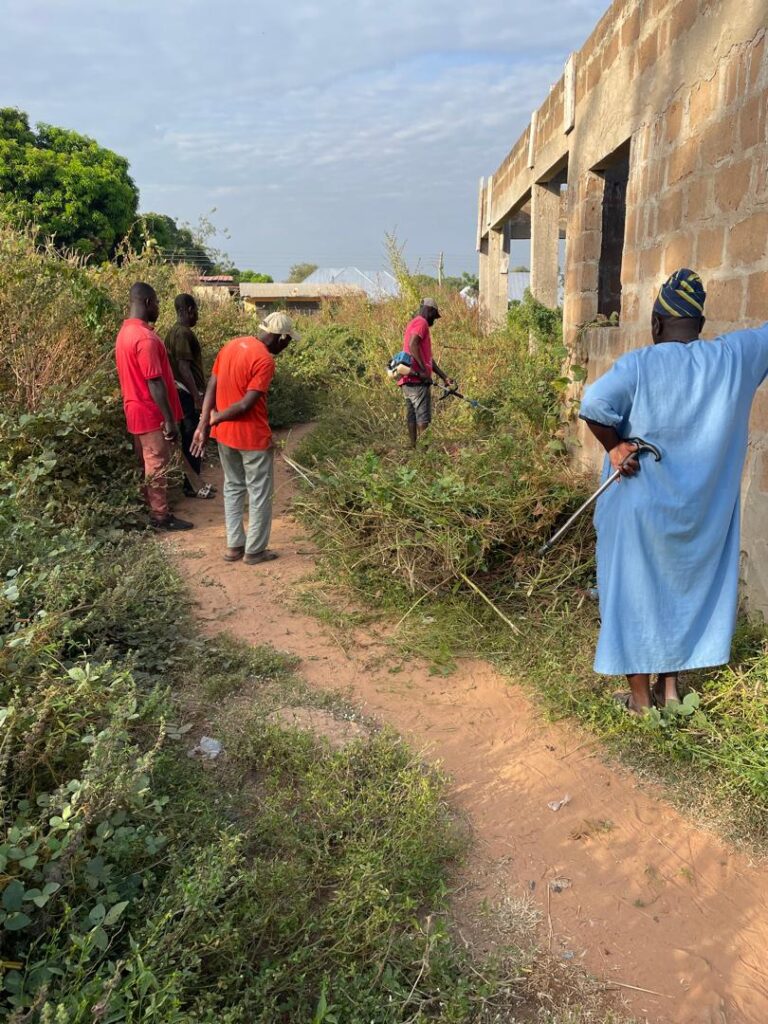
Ghana’s sanitation challenges remain pressing, with only 25% of the population having access to basic sanitation services. Approximately 57% of Ghanaians rely on shared or public facilities, while about 18% still practice open defecation—a situation linked to significant public health risks. Nationally, an estimated 10,653 deaths are attributed to water, sanitation, and hygiene (WASH)-related illnesses each year.
Poor waste management and indiscriminate dumping continue to contribute to environmental pollution, flooding, and disease outbreaks. Over the years, government initiatives such as the National Sanitation Day, “Clean Ghana” campaigns, and the establishment of hotlines for reporting environmental concerns have sought to bridge the sanitation gap. However, community-driven efforts like those seen in Damongo remain essential in ensuring long-term, sustainable improvements.
The DASS Electoral Area clean-up exercise stands as a demonstration of what community action can achieve—showing that with shared responsibility and consistent engagement, improving sanitation is not only possible but vital for public health and dignity.
Abdulai Zulkaninu – 0242381890
